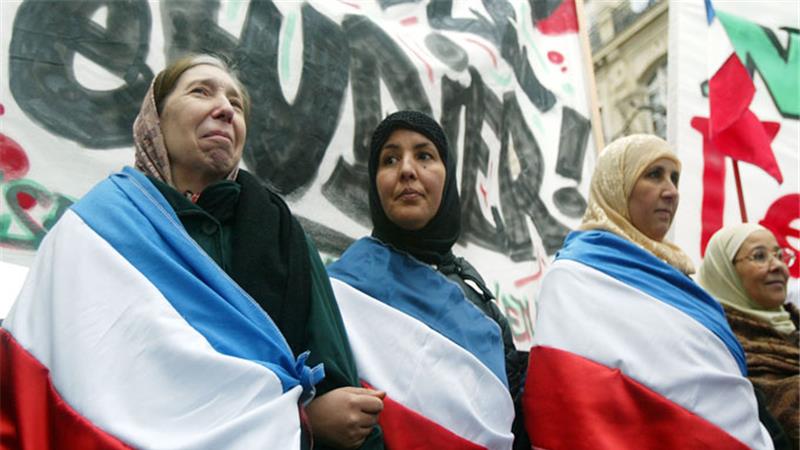What Virginia Poe learned about French attitudes towards Syrian immigration and Muslim children in French schools
I spent last weekend in a small suburb about an hour outside of Paris. I went to stay with my landlord and his wife at their country house in Houdain. Phillip and Sylvie were the most gracious hosts. We swam in their heated pool and went to a fair and in the evening Sylvie’s grown children joined us for dinner. Over a dinner of raclette, the conversation turned to politics and I gained a new perspective on the issues of Syrian immigration and headscarves in French schools.
As a politically minded American, I was interested in hearing their opinions on issues I found confusing. I felt that I was missing some of the cultural nuances of French public opinion.
We opened with the issue of Syrian refugees. I wanted to know what they thought about the immigration quotas established by certain countries in the European Union (France included) as a result of the ongoing civil war in Syria. I mentioned that Germany is receiving 800,000 refugges while France is allowing only 24,000 Syrians fleeing war to enter France. Sylvie’s son-in-law Dmitri responded that this was because few Syrians really want to come to France. “They know it will be much easier in Germany because Germany has money”, he said. He was very confident in his logic and I found it surprising. This man truly believed that there were only 24,000 Syrian refugees who wanted go come and live in France.
Later in the evening as the desert was presented, we got into the subject of headscarves in schools. In France it is illegal for Muslim girls, or anyone, to cover their head while at school. I have been unable to comprehend this prohibition. How does one wearing a scarf detract from one’s learning or the learning of others? In fact, from my perspective it has quite the opposite effect, causing those wishing adhere to the tenants of their faith to not attend school and sacrifice their education. The consequence of this is not only a whole class of women who negatively effect their futures by forgoing their education but it also institutionally relegates these young women to a separate sub-class away from their non-Muslim peers.
Dmitri patiently, albeit a little condescendingly, explained to me that all religion is banned in French schools. Christian children are not allowed to display crosses nor are Jewish children allowed to wear stars of David. Simply, religion is not to be displayed in public institutions, end of discussion. I commented that neither Christianity nor Judaism require followers to wear either of these symbols, while asking a Muslim girl to remove her headscarf was a direct rebuke of her beliefs. Dmitri seemed unconcerned with the fate of these girls facing an impossible choice: their future or their God.
I went on thinking about Dmitri’s comments long after I left the countryside. Dmitri could not be the only one who held these beliefs. On both subjects he seemed to be repeating known talking points about the issues. Talking points that superficially addressed concerns in a concise sound bite and then moved on. Unfortunately for France, there will come a time when they cannot ignore the torrent of displaced and traumatized Syrians looking for a new home or the problems that will arise from a growing class of under educated and ostracized segment of the French Muslim population. I think it will be prudent as time goes on for Americans and other European countries to observe how France tackles these challenges and take queues from their impending successes and inevitable failures.






